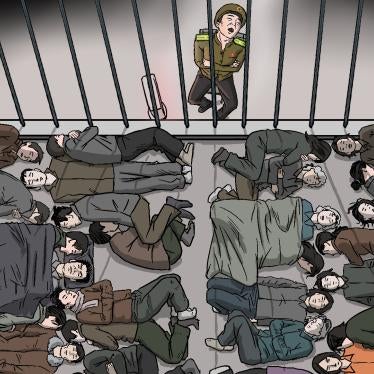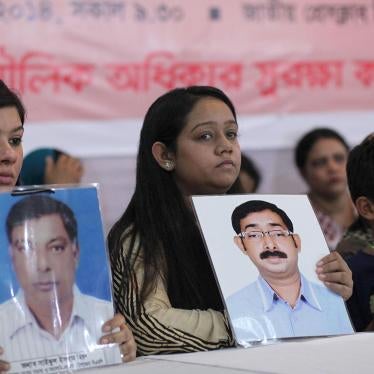The undersigned organisations call for the immediate and unconditional release of Kashmiri human rights defender Khurram Parvez, who was arrested one year ago on November 22, 2021 on politically motivated terrorism and other charges.
Parvez, the Coordinator of the Jammu Kashmir Coalition of Civil Society (JKCCS) and Chairperson of the Asian Federation Against Involuntary Disappearances (AFAD), has been a champion of human rights advocacy, documentation, and investigations including in the Jammu and Kashmir region, for over 20 years.
On November 22, 2021, India’s counterterrorism body, the National Investigation Agency (NIA), raided Parvez’s home and office for approximately 14 hours, seizing his and his family members’ laptop, mobile phone, and books. He was then called in for questioning at the NIA office where he was arrested on the basis of a First Information Report lodged by the NIA on November 6, 2021. The arrest memo stated that Parvez was being charged under the Indian Penal Code and the Unlawful Activities Prevention Act (UAPA), India’s abusive counterterrorism law, which makes release on bail difficult. Specifically, he was charged with “criminal conspiracy,” “waging, or attempting to wage war, or abetting waging of war, against the Government of India,” “punishment for conspiracy to wage war against the Government of India,” “raising funds for terror activities,” “punishment for conspiracy,” “recruiting any person or persons for commission of a terrorist act,” “offence relating to membership of a terrorist organisation,” and “offence of raising funds for terrorist organisations.” In May 2020, United Nations (UN) experts raised concerns about various provisions in the UAPA that are inconsistent with international human rights law and standards.
Indian authorities have repeatedly targeted Khurram Parvez for his human rights work in an attempt to silence him and intimidate others. Over the years, the NIA and other law enforcement agencies have accused him of “carrying out secessionist and separatist activities” in the region and have conducted raids at his home and offices. In 2016, authorities barred him from travelling to Switzerland to attend the UN Human Rights Council session, and then jailed him for 76 days under the Jammu and Kashmir Public Safety Act (PSA). In December 2021, UN experts urged the Indian authorities to stop targeting Parvez.
On May 13, 2022, after 173 days of detention, the NIA filed a preliminary charge sheet before the NIA Special Court in New Delhi against Parvez and stated that they will continue investigating this case. The NIA accused Parvez of “running a network of over ground workers of the [Pakistan-based armed militant organisation] Lashkar-e-Taiba (LeT) for furthering activities of LeT and to commit terrorist attacks in India”, according to the press release published by the NIA on May 13, 2022. His detention has since then been extended at least five times by the NIA Special Court in New Delhi under Section 43D(2)(b) of the UAPA, which allows for the extension of the detention period for up to 180 days if the investigating agency is unable to complete the investigation of a case within a 90-day period.
Parvez has now been in detention for one year. His arbitrary detention is part of a longstanding list of human rights violations committed by Indian authorities against human rights defenders, civil society organisations, journalists, and activists in Jammu and Kashmir. Rather than working towards accountability for these violations, authorities have targeted and arrested those who have exposed and sought justice for such violations. Indian authorities have also clamped down on media freedom and shut down the internet to quash peaceful protests and restrict access to information. This has caused a chilling effect, further shrinking civic space in a region that is already facing an increasing clampdown on dissent since the Indian Parliament revoked Jammu and Kashmir’s special autonomous status in August 2019.
The Indian authorities must release Parvez immediately and unconditionally, and all charges against him must be dropped, as they are a reprisal for his peaceful human rights work. Human rights defenders should be protected, not persecuted. The Indian authorities must stop criminalising the work of human rights defenders and end all attempts to silence and intimidate human rights defenders and others critical voices of the government. Instead, Indian authorities should prioritise ending impunity for the human rights violations that human rights defenders have bravely documented and exposed, especially in Jammu and Kashmir, and ensure human rights defenders can work in a safe and enabling environment without fear of reprisals.
Signed:
Amnesty International
Asian Federation Against Involuntary Disappearances (AFAD)
CIVICUS: World Alliance for Citizen Participation
FORUM-ASIA
Front Line Defenders (FLD)
Human Rights Watch
International Commission of Jurists (ICJ)
International Federation for Human Rights (FIDH), in the framework of the Observatory for the Protection of Human Rights Defenders
International Service for Human Rights (ISHR)
Minority Rights Group International
Stichting The London Story
World Organisation Against Torture (OMCT), in the framework of the Observatory for the Protection of Human Rights Defenders







